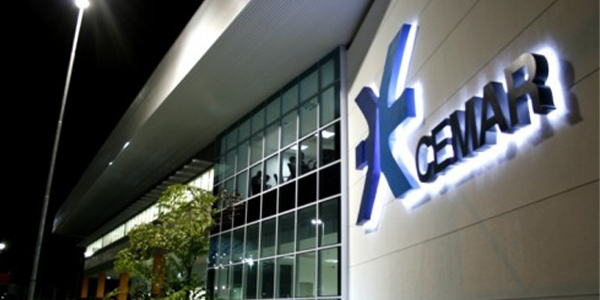Volume 10 | Issue 4

Growing up in Brazil’s southernmost state of Rio Grande do Sul, Ademir Argenta dreamed of someday having his own company. His dream became reality in 1980, when together with Aldo Cemin (director of Eletro Mecânica Cemin, one of the oldest and most respected electrical material firms in Rio Grande do Sul) he launched Cemar Indústria Metalúrgica, a small plant whose specialty was making steel boxes for interrupters and sockets.
New Products, New Plants
Recalls Aldir Argenta: “The key to our growth was a commitment to investment in new technology and equipment accompanied by a continually expanding catalog of products and a constant search for new and more specific markets. We purchased modern equipment such as automated presses, matrices and automatic powder paint lines, and began to work with galvanized sheets of iron. We also created a new line of products made from thermoplastics that we produced in a new plastics unit that we installed in our industrial plant.”
Indeed, its plastics unit, inaugurated last year, comprises only one example of how Cemar is staying at the vanguard of its constantly changing industry. Today, aside from 12,000 tons of metal sheets, the company also consumes 4,000 tons of thermoplastic materials, annually. Confesses Argenta: “Plastics comprise a major trend in Europe right now and we decided to implement that here. In terms of electrical boxes, enclosures, and panels, we’re the first in Brazil to do this.”
The allusion to Europe is not arbitrary. Although it boasts a considerable distribution network that covers all of Brazil, recently Cemar has turned its attention to overseas markets. As part of its mission to globalize, over the past few years, the company has entered into several profitable distribution partnerships and joint ventures with Italian firms including Schyller, Korner, SapiSelco, Oelma, and Scame. While exports currently account for less than 5 percent of sales, Cemar is already present in Latin America, Africa, Europe, and the Middle East.
Winning Strategies
Cemar was purchased in 2006, by the Legrand Group, a French-based multinational renowned for its manufacture of low-voltage fittings and accessories for residential, commercial, and industrial buildings. Says Argento: “With this integration, we will have access to all the group’s affiliates and companies, in over 40 countries. Legrand is a major force and the only player in the market that can completely supply the global marketplace. The group doesn’t just deal with electrical installations, but with protection, distribution, safety and automation as well. We consider ourselves lucky to be with them because our products really complement each other.”
For now, on its home turf, spurred on by its impressive product mix (its catalog currently boasts over 6,500 items), its targeting of new niche markets, and its increasingly efficient distribution system, Cemar is enjoying annual growth rates of 10 percent. Adds Argenta: “We’ve also really come to focus on the services we offer our clients. Cemar provides very good cost-benefit ratios. Our pricing is very fair, but our benefits are higher than those of our competitors, most of which are small and medium-level firms that can’t offer the same delivery, easy installation, and diversity that we do.
And while we work with standard lines, we can eventually provide for the specific necessities of individual clients. We’re very reactive.”
This reactivity also extends to increasing concerns with respect to quality and environmental responsibility. In 1999, the company, which had already built its own on-site effluent treatment plant, launched its Clean Technology project that focused on minimizing the impact of waste products while helping the company to diminish the cost of primary materials. In addition, as part of its Total Quality project, it obtained ISO/9001 certification as well as certification from the Brazilian Association of Technical Norms (NBR). Says Argenta: “Although this isn’t obligatory, as market leaders we wanted to offer this additional service to our clients. This certification costs money, and for this reason most of our national competitors don’t try to obtain it. But having this standard of quality really does justice to the levels of expertise and technical resources that we have worked hard to develop over the years.”
Indeed, trends and markets change, but having just commemorated a quarter-century of activity, Cemar remains as sure of its staying power as it was the day it first it opened the doors of its tiny basement factory. When asked to what he attributes his company’s longevity Argenta pauses and then says: “We’re still here because we’re very committed to being present in this marketplace. Ultimately, Cemar is a very practical company that reacts quickly to what’s going on. We have a good administration, we’re lean, flexible, simple, and, yes, we’re
very practical.”
Scott Ellyson, CEO of East West Manufacturing, brings decades of global manufacturing and supply chain leadership to the conversation. In this episode, he shares practical insights on scaling operations, navigating complexity, and building resilient manufacturing networks in an increasingly connected world.